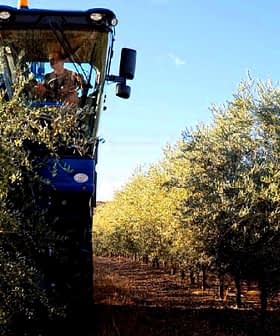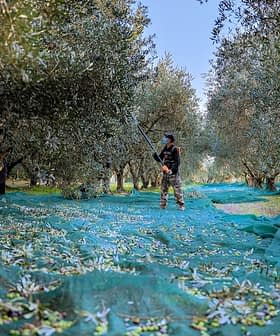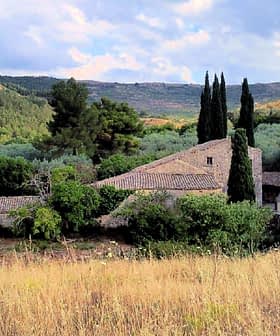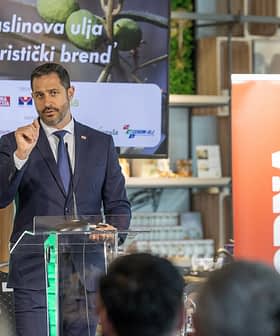Monogram Cultivates Success Through Teamwork in Greece
The four young co-founders of Monogram used their professional backgrounds to found an award-winning olive oil brand in Kalamata.
At the foot of Mount Taygetos on the southwestern tip of the Peloponnese peninsula is Kalamata.
The city is well-known in Greece for its beautiful beaches only a stone’s throw away from downtown and easy escapes to the nearby mountains for locals and visitors alike.
Participating and receiving awards in the largest and most renowned olive oil quality competition in the world is a huge challenge for us each year.
Kalamata and the broader Messenia region also boast a long tradition of producing olive oil and table olives.
Apart from the renowned Protected Designation of Origin-certified Kalamata olives produced in the area, Messenia is a significant olive oil-producing region, yielding more than 50,000 tons in bountiful seasons.
See Also:Producer ProfilesAs a result, Messenia is home to dozens of businesses involved in producing, bottling and exporting olive oil.
Among them, Monogram Olive Oil is the brainchild of the Magganas family, which boasts a rich past in olive cultivation and oil production dating back three generations.
“My grandfather started planting olive trees in 1918,” co-owner Anastasis Magganas told Olive Oil Times. “Then, my father took over, the first in the family to produce top-quality extra virgin olive oil.”
“I remember as a boy going with him to the fields learning the secrets of cultivating and pruning the olive trees,” he added. “The creation of a range of olive-based products came as a natural flow in my life’s twists and turns, also fulfilling my desire to return and stay at my birthplace, Kalamata.”
Magganas also recalled when the family contemplated venturing into the world of professional olive oil production.
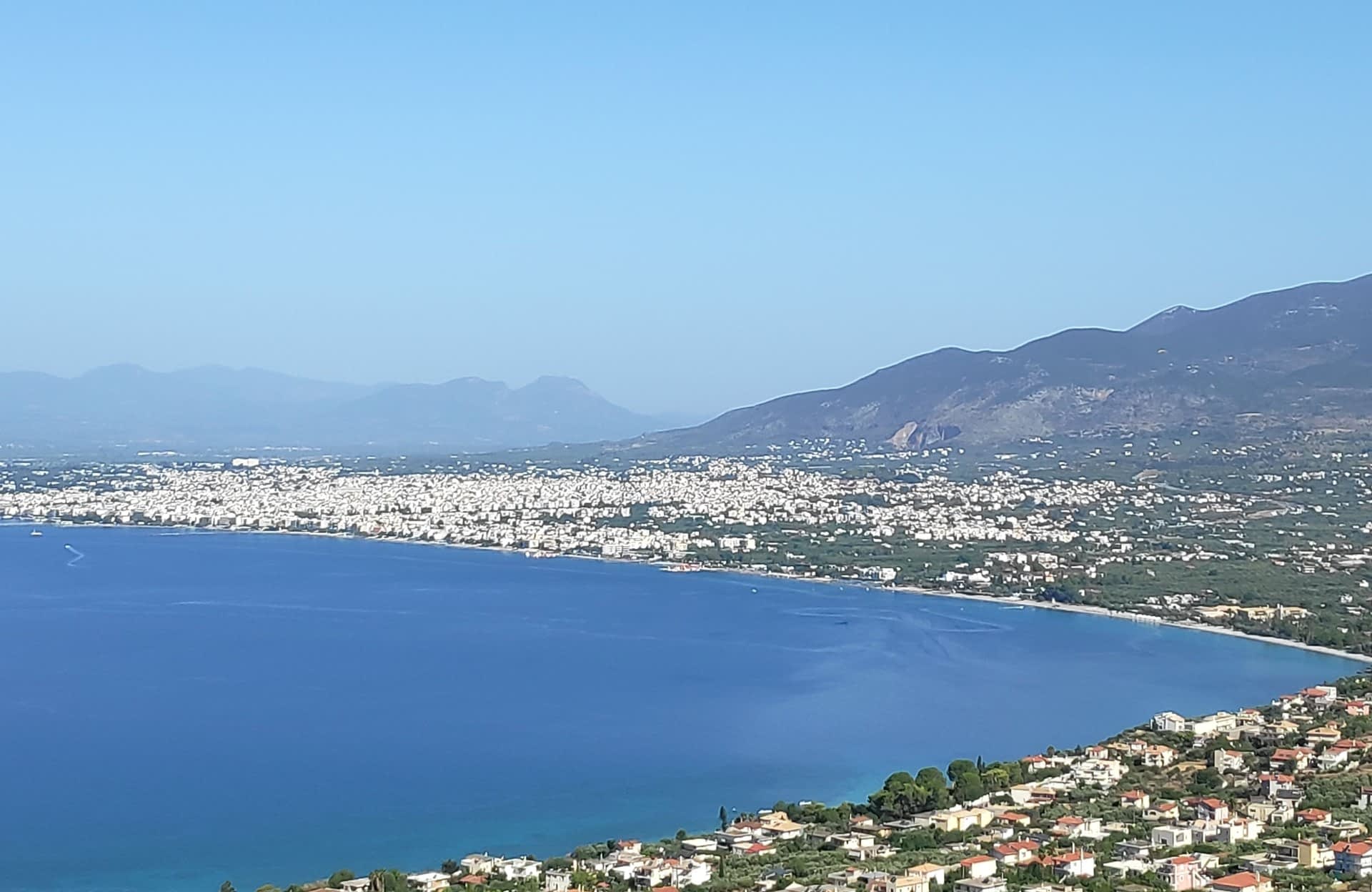
View of Kalamata from the surrounding hills (Photo: Olive Oil Times)
“I remember I was in the fields during the day with the workers, and when the sun was setting, we were gathering with [my wife] Vassiliki and [my sister] Joanna by the fireplace, discussing and dreaming while looking at old photos,” Magganas said.
“Eventually, our dream came true in 2018, and now Monogram is a globally recognized olive oil company with distinctions in international olive oil quality and design competitions,” he added.
The Magganas family, who form the Monogram team, is a well-matched yet heterogeneous group of people whose different educational and scientific backgrounds perfectly serve the company’s needs and day-to-day operations.
We focus a lot on educating the consumers, challenging them to taste our olive oils.
Magganas is a mathematician who brings his finance and olive oil production expertise. Meanwhile, Joanna, a dermatologist currently living and working in Zurich, has a deep understanding of the antioxidant and anti-inflammatory properties of olive oil.
Food chemist Vassiliki Skiada contributes her professional competence after working as a supervisor in olive oil quality laboratories for more than a decade. Last but not least, Manos Vournelis, a process engineer, is the product manager at Monogram.
“The partners I have chosen to join the Monogram team are our most important resource,” Magganas said. “I firmly believe in team spirit, the expertise that each of us possesses, and our dedication and willingness to succeed.”
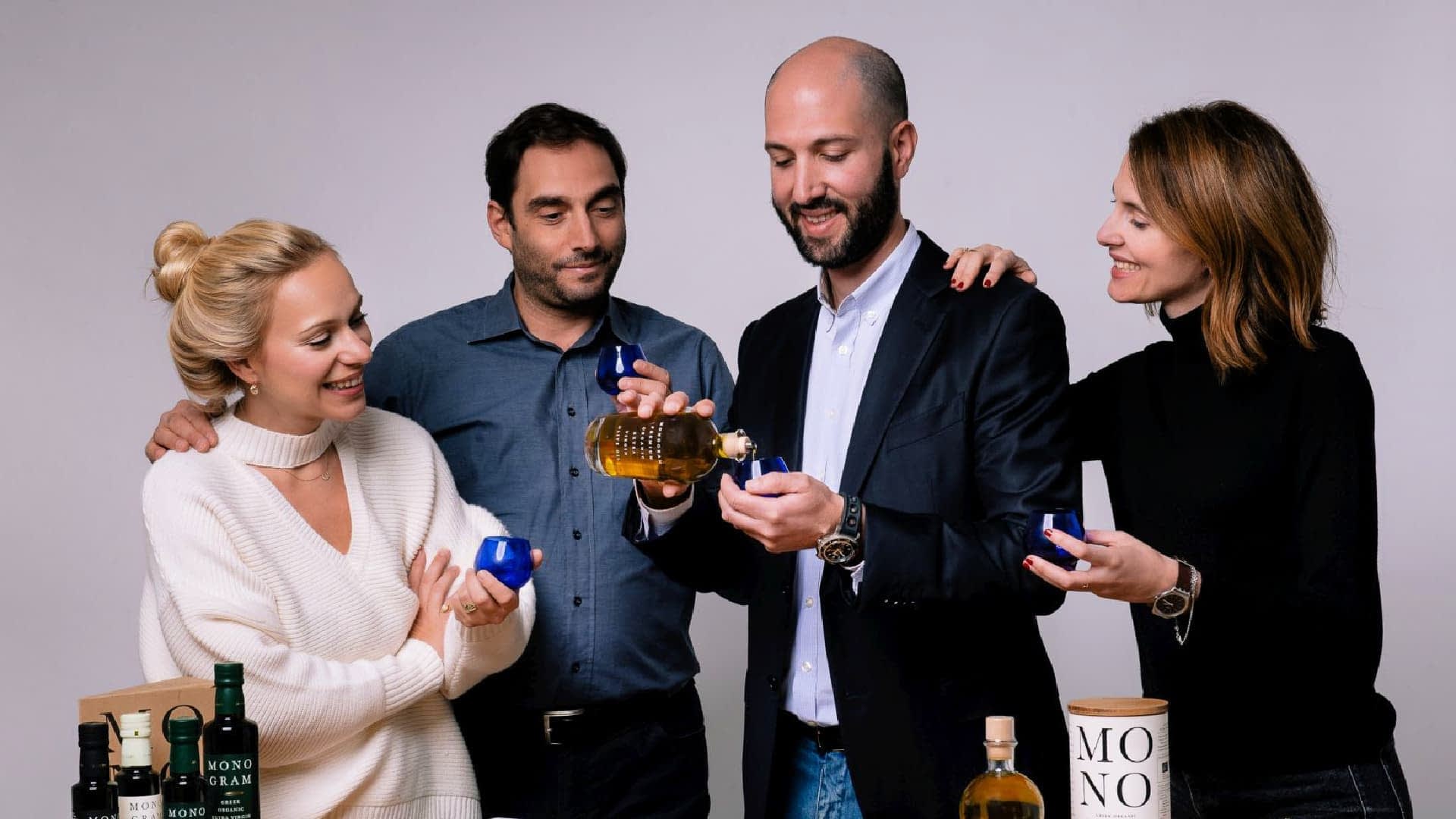
The Monogram Team: Vassiliki Skiada (left), Manos Vournelis, Anastasis Magganas, Joanna Magganas
“I would also like to acknowledge the contribution of our external partner, agronomist and olive oil expert Konstantinos Liris, and his capacity as a quality consultant,” he added.
The name Monogram, meaning two or more interwoven letters, came about by chance when the company’s founders were searching for a suitable name for their newborn business.
“My love for poetry led me to the word, Monogram,” Magganas said. “One evening, I was reading the poem Monogram, written by one of the greatest Greek poets, the Nobel Prize winner Odysseas Elytis.”
“Monogram is a Greek word pronounced the same way in all languages, and the poem reminded me of my love and passion for olive oil,” he added. “We decided on it almost immediately, and it has been our quality signature ever since.”
Even though the company’s inception coincided with the start of the Covid-19 pandemic, the team behind Monogram turned the challenge into an opportunity, taking advantage of the markets’ closures to lay the foundations for a successful entry into the olive oil business.
“During the two difficult years of the pandemic, we worked internally, improving our products, setting up collaborations and looking for the proper distribution channels,” Magganas said. “This year, with the markets open all over the world, we are enjoying a rapid growth in sales.”
Monogram is primarily an export-oriented company, with its products shipped to central European and East Asian countries, including Japan and South Korea. The company is also constantly looking to expand its customer base, making its first steps in the American market this year.
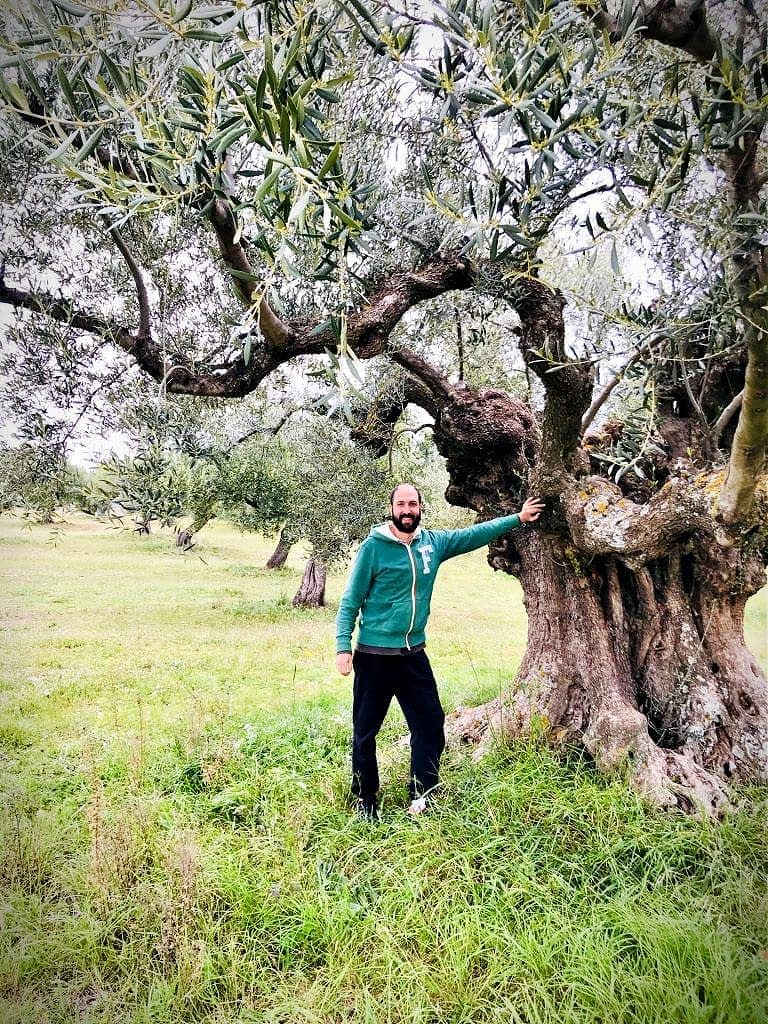
Anastasis Magganas in the olive groves
The olives are harvested early in the season and are transformed into olive oil on the same day.
“We avoid late harvest,” Magganas said. “The ripening level of the olives is crucial for the oil content and its organoleptic characteristics. Optimum harvest time offers extra virgins with maximum aromas and flavor complexity.”
“We transport the olives to the mill immediately after harvest, press and knead them in less than 30 minutes,” he added. “We also filter our olive oil to avoid the presence of any water or other residues that could lead to the hydrolysis of the phenols.”
“Our early harvesting contributes to a higher concentration of polyphenols, which are widely praised for their disease-fighting properties,” Magganas continued. “Monogram’s high-polyphenol extra virgin olive oil belongs to the category of healthy extra virgin olive oils that protect blood lipids from oxidative stress according to the Commission Regulation 432/2012.”
Monogram’s first line of olive oils includes three types: Monogram Mild Flavor, Intense Flavor and Organic. Each one is made from Koroneiki olives harvested from the company’s groves near the village of Kremmydia in central Messenia.
“These three products are differentiated and distinguished in terms of their organoleptic characteristics: the intense and robust profile of early harvest versus a mild and delicate profile of regular harvest, emphasizing mainly the aromas and flavor of the Koroneiki variety,” Magganas said.
Monogram’s Organic Blend, made from Koroneiki and Athinolia olives, received a Gold Award at the tenth edition of the NYIOOC World Olive Oil Competition this year.
In the previous edition of the competition, the company also earned a Gold Award for its Special Edition Blend made from the same varieties.
“Participating and receiving awards in the largest and most renowned olive oil quality competition in the world is a huge challenge for us each year,” Magganas said. “It is the recognition of our team’s hard work, which starts in the field and continues to the extraction and bottling of the olive oil.”
Monogram has also introduced a new series of monovarietal extra virgin olive oils made from Koroneiki and three other select indigenous Greek varieties: Athinolia, Valanolia and Maronia.
“After extended research, we created the Monogram monovarietals from four cultivars known for their unique sensory profiles,” Magganas said. “The philosophy behind our monovarietals is that the consumer can taste and pair their food with different Greek olive varieties, in the same way they pair food with wine.”
Monogram’s monovarietal extra virgin olive oils have also found their way into restaurant kitchens around the world and are regularly used by chefs.
“It was amazing that award-winning chefs from abroad wanted to taste and test our products and finally decided to do business with us,” Magganas said. “Their response after tasting our olive oils was overwhelming.”
The company’s olive-based product portfolio also includes four variations of authentic Kalamata olives, the ‘black pearls’ as the people of Monogram usually call them, packaged into small jars filled with extra virgin olive oil or olive brine to preserve the olives.
Monogram olive oil has based and built its existence around the notion of well-informed consumers, trying to inform customers about extra virgin olive oil at every available opportunity.
“We focus a lot on educating the consumers, challenging them to taste our olive oils,” Magganas said. “So we urge our wholesale customers, deli stores, online retailers, hotels and restaurants to present consumers with the opportunity to taste the oils before buying and guide them through our selection of olive oils according to the food they want to cook or pair with.”
The company’s dedication to disseminating information is also evident in the packaging of their olive oils, specifically designed to convey data to consumers.
“The idea is for the packaging to resemble a book,” Magganas explained. “The front of the packaging contains the book’s contents, in the same way that consumers flip through a book so that on each side of the box, they can read the information and history of the olive oil. Our goal is to provide as much targeted information to consumers as possible.”
“We also use eco-friendly packaging materials, paper labels and boxes, glass bottles, no plastic at all,” he added.
Despite Monogram’s blistering pace forward, Magganas knows that challenges lurk ahead. However, he clearly understands what is needed to succeed in such a competitive field as the global olive oil industry.
“The road ahead is long and at the same time exciting,” he said. “The vision of young professionals can be crowned with success through the love for what they do, scientific knowledge and innovation.”
“Our goal is to establish Monogram as a seal of quality and creativity, just like the characteristic circular shape of our logo,” Magganas concluded.

